- 2 hours ago
- Europe
Turkey's governing AK party has lost its parliamentary majority for the first time in 13 years, near-complete election results show.
The surprise outcome also sees the pro-Kurdish HDP crossing the 10% threshold, securing seats for the first time.
With 99% of the vote counted, the AKP has 41% of the vote, state-run TRT television reports.
The result is a blow to President Recep Tayyip Erdogan's plans to boost his office's powers.
President Erdogan, who first came to power as prime minister in 2003, had been seeking a two-thirds majority to turn Turkey into a presidential republic.
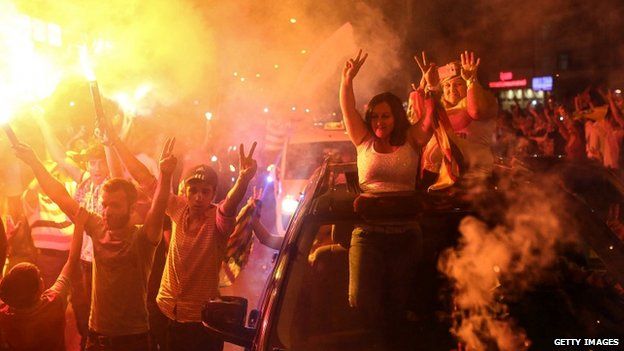
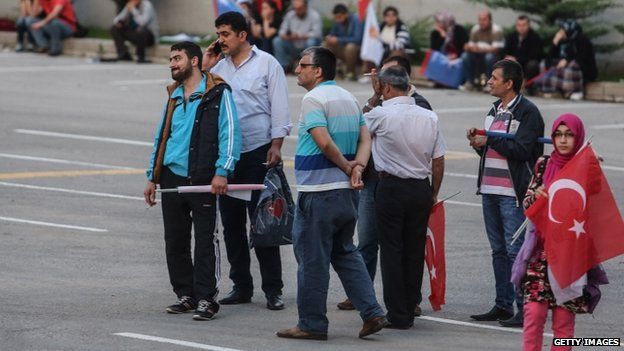
Prime Minister Ahmet Davutoglu appeared to have accepted the results. "The people's decision is the most correct decision," he said while preparing to fly from his hometown of Konya to the capital, Ankara.

The BBC's Mark Lowen in Istanbul
The AKP has polled worse than it ever feared and lost its majority. President Erdogan will be unable to change the constitution and extend his powers.
It's a stark contrast with the HDP, which gambled to run as a single party for the first time, hoping to cross the 10% threshold. It paid off, gaining a significant voice for the Kurdish minority on the national stage.
It succeeded by appealing beyond the Kurds, drawing in leftists and staunch Erdogan opponents with its message of equality, gay rights and environmental concerns.
This could be the start of a new political era here; a major setback for a president who has polarised this nation.
In a volatile Middle East, Turkey matters greatly - and so the path it takes, the nature of its democracy and the leaders it produces, all have implications far beyond its borders.

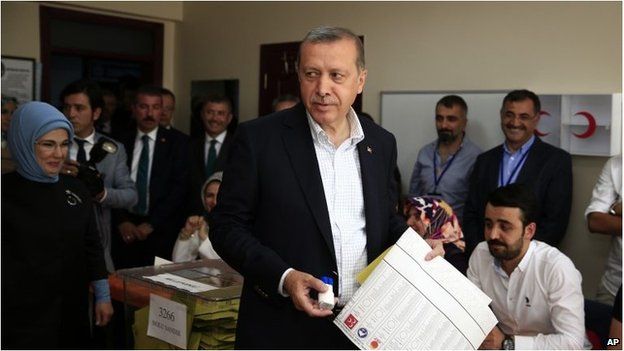
Sunday's election has produced an extraordinary result and represents a major change in Turkish politics, the BBC's Mark Lowen says.
The party that once seemed unstoppable for 13 years under Mr Erdogan may now struggle to form a government.
The AKP looks likely to win 258 seats in parliament, 18 fewer than it requires for a majority, foricing it to form a minority government or enter into a coalition.
Our correspondent says that there is now a subdued and glum atmosphere at the Justice and Development Party (AKP) headquarters in contrast to a sense of jubilation among HDP supporters at news that their party had won around 13% of the vote and would enter parliament for the first time.
"This was a victory of democracy over political corruption... of peace over war," HDP deputy Sirri Sureyya Onder said.
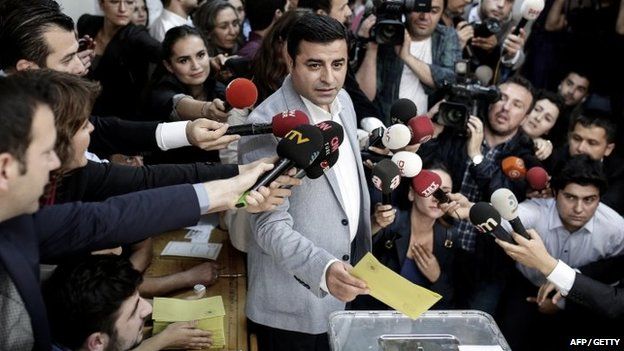
The HDP's leader ruled out a coalition with the AKP on Sunday, pointing out that the election results had put an end to discussions about a presidential system.
"The discussion of executive presidency and dictatorship have come to an end in Turkey with these elections," Selahattin Demirtas told a news conference in Istanbul.
The HDP is projected to get between 75 to 80 seats after successfully attracting votes beyond its Kurdish support base.
The Republican People's Party (CHP) is set to be the second largest party, as in the previous parliament, with around 25% of the vote.
CHP Istanbul Chairman Murat Karayalcin said that results show a clear rejection by voters of Mr Erdogan's drive for greater powers.
"Voters said a clear no to the presidential system," Mr Karayalcin said.
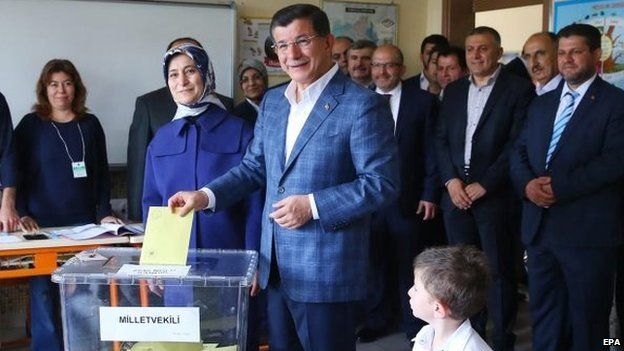

No comments:
Post a Comment